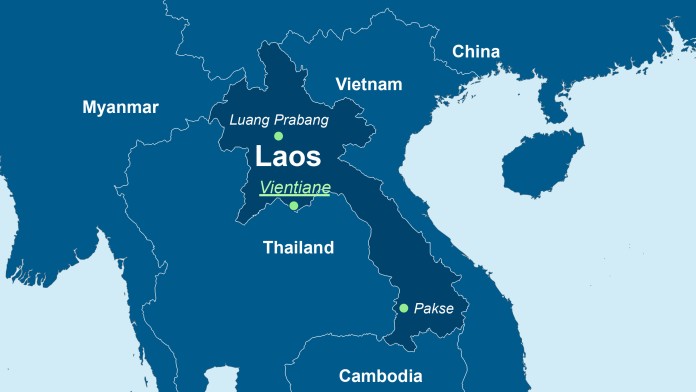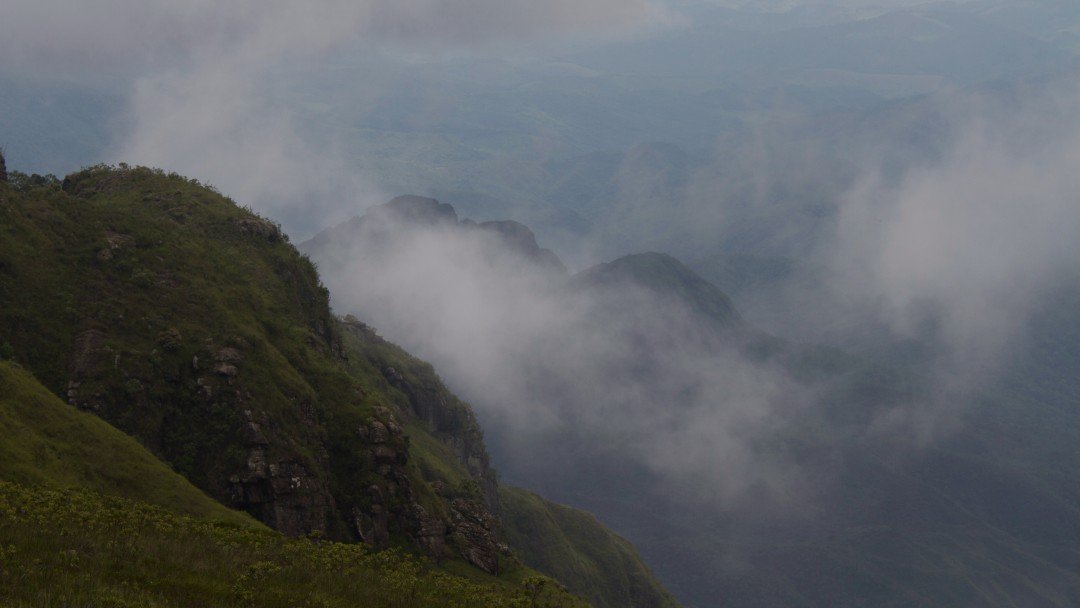
As of: 11/2023
The government of Laos intends to reform its forest sector comprehensively and to ensure greater transparency and sustainability in the forest supply chain. Within a few decades, the quality of the forest in terms of biodiversity and timber supply has declined dramatically. The reasons for this rapid decline are not only large-scale infrastructure projects and illegal logging, but also corruption and legal uncertainty. In order to stop illegal logging, a legality certificate for different timber supply sources is to be introduced and large areas of forest adjacent to legal forest conversion areas are to be monitored using digital remote sensing systems. This will benefit the legal use of the forest, the economy, the forest ecosystem, the climate, biodiversity – and last but not least the poor population of Laos who largely live from the products of the forest.
Eighty years ago, Laos was still 70% forest. Even though large parts of the country are still officially covered with forest today, the quality of the forest has now declined significantly: large infrastructure projects to develop hydropower, road and mining, unsustainable logging and shifting cultivation, as well as large scale rubber, cassava and banana plantations have accelerated this process.
Particularly in those forest areas bordering with concession and other risk (protected) areas officially designated or not for timber use, there is a high risk of massive illegal logging. In the forestry sector in Laos systems and controls are lacking to verify that timber has been legally harvested, transported and processed. In 2011/12, for example, in several provinces of the country it was found that more than half of the exported timber products came from undocumented sources. High quality tree species were particularly affected.

The project "Support to Forest Law Enforcement, Governance and Trade (FLEGT-FC)" supports the Laotian Government in making the timber supply chain in Lao PDR more transparent and economically and ecologically sustainable.
FLEGT is an EU initiative and stands for "Forest Law Enforcement, Governance and Trade". At its core are the Voluntary Partnership Agreements (VPA) - voluntary but binding partnership agreements between the EU and governments. VPA partner countries shall set up a licensing and authorisation system to ensure that only legally harvested timber is sold and exported to the EU. The EU in the past negotiated a FLEGT agreement with nine countries, including Laos. During the last two years the VPA negotiation process with Laos was on hold and a new EU Deforestation Regulation under development. Although the future of the EU VPA process is uncertain, the central component of the voluntary partnership agreement remains relevant and important. It is the so called Timber Legality Assurance System (TLAS) – a control and labelling requirement that applies to all stages of timber processing, from felling and processing to the sale of the respective product. It is designed to ensure that mainly legally harvested and verified timber is traded and to improve forest protection and management overall. Without this timber tracking and certification, it will no longer be possible to legally harvest, process or trade timber in Laos, export it in the Region or to the EU.An important pillar of the project is that adequate supply chain control for all legally defined local timber supply sources is established and operationalized. This is being supported by the digital remote sensing system, based on high resolution satellite images. The satellites daily collect relevant data that is so accurate that they can also document the felling of individual, larger trees. The main purpose of the remote sensing system is to monitor over a larger area those forests, that border on the legal forest conversion areas or other risk areas. In the past, these areas have often been illegally cleared. Or illegally logged timber was “greenwashed” under a conversion permit, to give the timber a legal seal.
Furthermore, the project intends to strengthen the Lao wood industry to improve efficiency, stable value-added production, job creation, and to comply with timber legality requirements. KfW is supporting the project on behalf of the German federal government with a grant of EUR 20 million and is cooperating closely with the EU Commission and the Gesellschaft für Internationale Zusammenarbeit (GIZ) which is accompanying the political FLEGT process in Laos since many years. Employees in the forestry sector and in the administration will be introduced to the use of digital remote sensing systems, among other things, and will learn to collect, evaluate, and process satellite images and GPS data. The project will also create a Management Information System (MIS) for documenting and tracking timber along the supply chain. This database will form the basis for generating electronic timber legality certificates (e-licensing).
The project builds on the experience with FLEGT in countries such as Indonesia which in 2016 became the first of the 15 tropical timber countries to introduce the required FLEGT licences for the EU market. Active monitoring has made it possible to significantly reduce illegal logging and increase the sustainability of timber production. The electronic procedures helped to remove bureaucratic obstacles and increase transparency by closely following the path the timber takes. In Laos, too, the FLEGT process is providing the impetus to reform and modernise the forestry sector. So far serious international investors have been holding back: they fear the reputational risk if they can be accused of promoting illegal logging with their investments and contributing to the destruction of Laos' forest resources.
The project contributes to the achievement of these following United Nations Sustainable Development Goals:
KfW Group
KfW Development Bank
+49 69 7431-0
www.kfw-entwicklungsbank.de
Natural Resources and Climate, Asia
and
Competence Centre Infrastructure and Natural Resources
KfW Office Vientiane, Laos
Share page
To share the content of this page with your network, click on one of the icons below.
Note on data protection: When you share content, your personal data is transferred to the selected network.
Data protection
Alternatively, you can also copy the short link: https://www.kfw-entwicklungsbank.de/s/enzBsxXK
Copy link Link copied